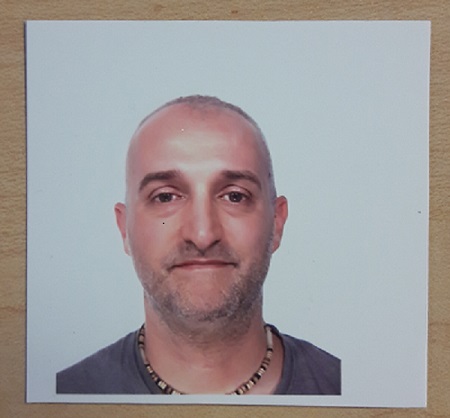Studying at the University of Verona
Here you can find information on the organisational aspects of the Programme, lecture timetables, learning activities and useful contact details for your time at the University, from enrolment to graduation.
Academic calendar
The academic calendar shows the deadlines and scheduled events that are relevant to students, teaching and technical-administrative staff of the University. Public holidays and University closures are also indicated. The academic year normally begins on 1 October each year and ends on 30 September of the following year.
Course calendar
The Academic Calendar sets out the degree programme lecture and exam timetables, as well as the relevant university closure dates..
| Period | From | To |
|---|---|---|
| Semestrino IA | Sep 29, 2014 | Nov 8, 2014 |
| Semestrino IB | Nov 10, 2014 | Dec 20, 2014 |
| Semestrino IIA | Feb 23, 2015 | Apr 18, 2015 |
| Semestrino IIB | Apr 20, 2015 | Jun 6, 2015 |
| Session | From | To |
|---|---|---|
| Sessione invernale | Jan 19, 2015 | Feb 21, 2015 |
| Sessione estiva | Jun 8, 2015 | Jul 31, 2015 |
| Sessione autunnale | Aug 31, 2015 | Sep 26, 2015 |
| Session | From | To |
|---|---|---|
| Sessione estiva | Jul 10, 2015 | Jul 10, 2015 |
| sessione autunnale - I appello | Oct 30, 2015 | Oct 30, 2015 |
| sessione autunnale - II appello | Dec 18, 2015 | Dec 18, 2015 |
| sessione invernale straordinaria | Mar 18, 2016 | Mar 18, 2016 |
| Period | From | To |
|---|---|---|
| Festa di Ognissanti | Nov 1, 2014 | Nov 1, 2014 |
| Festa dell'Immacolata Concezione | Dec 8, 2014 | Dec 8, 2014 |
| VACANZE DI NATALE | Dec 22, 2014 | Jan 6, 2015 |
| Vacanze di Pasqua | Apr 2, 2015 | Apr 7, 2015 |
| Festa della Liberazione | Apr 25, 2015 | Apr 25, 2015 |
| Festa dei Lavoratori | May 1, 2015 | May 1, 2015 |
| Festa del S. Patrono S. Zeno | May 21, 2015 | May 21, 2015 |
| Festa della Repubblica | Jun 2, 2015 | Jun 2, 2015 |
| Vacanze Estive | Aug 10, 2015 | Aug 16, 2015 |
Exam calendar
Exam dates and rounds are managed by the relevant Humanistic Studies Teaching and Student Services Unit.
To view all the exam sessions available, please use the Exam dashboard on ESSE3.
If you forgot your login details or have problems logging in, please contact the relevant IT HelpDesk, or check the login details recovery web page.
Should you have any doubts or questions, please check the Enrollment FAQs
Academic staff
 stefania.annechini@univr.it
stefania.annechini@univr.it
 gaia.cetrano@univr.it
gaia.cetrano@univr.it
 roberto.dallachiara@univr.it
roberto.dallachiara@univr.it
 luca.digiovanni@univr.it
luca.digiovanni@univr.it
Frighetto Roberta
 roberta.frighetto@univr.it
roberta.frighetto@univr.it
 annamaria.giarola@univr.it
annamaria.giarola@univr.it
 mauro.niero@univr.it
mauro.niero@univr.it
Povolo Luciana
Strano Silvana
 silvana.stranoligato@univr.it
silvana.stranoligato@univr.it
 +39 045 8028856
+39 045 8028856
 giorgio.zoccatelli@univr.it
giorgio.zoccatelli@univr.it
Study Plan
The Study Plan includes all modules, teaching and learning activities that each student will need to undertake during their time at the University.
Please select your Study Plan based on your enrollment year.
1° Year
| Modules | Credits | TAF | SSD |
|---|
2° Year activated in the A.Y. 2015/2016
| Modules | Credits | TAF | SSD |
|---|
3° Year activated in the A.Y. 2016/2017
| Modules | Credits | TAF | SSD |
|---|
| Modules | Credits | TAF | SSD |
|---|
| Modules | Credits | TAF | SSD |
|---|
| Modules | Credits | TAF | SSD |
|---|
Legend | Type of training activity (TTA)
TAF (Type of Educational Activity) All courses and activities are classified into different types of educational activities, indicated by a letter.
Social and adult life education (2016/2017)
Teaching code
4S003176
Teacher
Coordinator
Credits
6
Language
Italian
Scientific Disciplinary Sector (SSD)
M-PED/01 - PEDAGOGY, THEORIES OF EDUCATION AND SOCIAL EDUCATION
Period
Sem. IIB dal Apr 24, 2017 al Jun 10, 2017.
Learning outcomes
1) Give future social assistants a pedagogical approach to the dynamics of adult life and the adults’ different roles;
2) Learn to identify in the adults, aspects that improve their empowerment whether they are in comfort or discomfort situations.
The course is based on this question: “How to accompany adults that are calling on the social service?”
First step --> To know:
- the vital steps that mark the adult becoming (historical overview)
- the category “adult” set in relation to some cultural models
- the critical implications of becoming adults (self-care, child care, care of elderly parents, community care)
Second step --> In practice:
- the experience knowledge to guide the social assistant's job
- pedagogical interview with adults: participatory maieutics
Program
The following topics will be faced during the lessons:
- The concept of age and its transformations.
- Women and men in the work of becoming adults: changes, steps, de-structuring and re-composition
- Self and Others’ care as characteristic of adult life
- educational paths with adults (the narrative practice in adulthood and old age)
- The group dimension in social work with adults (linguistic, religious, generational, geographical communities)
n. 3 mandatory texts:
1 - Daniele Loro, Lavorare con gli adulti. Aspetti pedagogici nella professione dell'assistente sociale. Dispensa 2015-2016 (la dispensa è disponibile presso la Cartoleria Ateneo, Lungadige Porta Vittoria, 37. www.ateneovr.it).
2 - Danilo Dolci, Conversazioni contadine, Il Saggiatore, Milano 2014.
3 – A choice between the followings:
- Rosanna Cima, Pratiche narrative per una pedagogia dell’invecchiare, Franco Angeli, Milano 2012.
- Silvia Aru, Matteo Putilli, Forme, Spazi e tempi della marginalità. Un itinerario concettuale, Società geografica italiana, Roma 2014, disponibile su: https://www.academia.edu/10194822/Numero_monografico_Forme_spazi_e_tempi_della_marginalit%C3%A0_Bollettino_della_Societ%C3%A0_Geografica_Italiana_XVI_2014_n._1
- Luigina Mortari, Apprendere dall’esperienza. Il pensare riflessivo nella formazione, Carocci, Roma 2003.
- Rosanna Cima, Culture della cura. Mediazione culturale ed etnoclinica in ambito educativo, sociale, sanitario, PresentArsì, Castiglione d/Stiv. 2014.
Educational organization
Lessons are structured so that there is, in addition to the contribution from the teacher’s theoretical part, a thinking moment shared between students in order to build a knowledge starting from the interactions between theory, students’ situated knowledges and pedagogical knowledge related to operational practices.
| Author | Title | Publishing house | Year | ISBN | Notes |
|---|---|---|---|---|---|
| Danilo Dolci | Conversazioni contadine | il Saggiatore | 2014 | ||
| Daniele Loro | Lavorare con gli adulti. Aspetti pedagogici nella professione dell'assistente sociale | dispensa | |||
| Cima Rosanna | Pratiche Narrative per una pedagogia dell'invecchiare | Franco Angeli | 2012 |
Examination Methods
The exam will be an oral interview with direct questions aimed to probe the rational study of the theories in the studied texts.
Type D and Type F activities
Modules not yet included
Career prospects
Module/Programme news
News for students
There you will find information, resources and services useful during your time at the University (Student’s exam record, your study plan on ESSE3, Distance Learning courses, university email account, office forms, administrative procedures, etc.). You can log into MyUnivr with your GIA login details: only in this way will you be able to receive notification of all the notices from your teachers and your secretariat via email and soon also via the Univr app.
Student mentoring
Linguistic training CLA
Gestione carriere
Practical information for students
Documents
| Title | Info File |
|---|---|
|
|
pdf, it, 325 KB, 02/05/23 |
|
|
pdf, it, 212 KB, 02/05/23 |
|
|
pdf, it, 131 KB, 02/05/23 |
Graduation
Documents
| Title | Info File |
|---|---|
|
|
pdf, it, 99 KB, 13/10/23 |
|
|
pdf, it, 101 KB, 10/04/24 |
List of theses and work experience proposals
| theses proposals | Research area |
|---|---|
| Proposta tesi | Various topics |
Assistente Sociale
Comune e Università di Verona collaborano per la formazione alla professione di assistente sociale.
Professione Assistente Sociale
Pagina aggiornata il 18/1/2022
Stage e Tirocini
Le attività̀ di tirocinio degli studenti si svolgono presso strutture esterne, convenzionate con l’Università degli Studi di Verona ai sensi delle vigenti disposizioni in materia. Nelle strutture esterne gli studenti svolgono le attività di tirocinio sotto la responsabilità di un assistente sociale (Tutor-supervisore), appartenente a dette strutture, coordinato a sua volta dal responsabile del tirocinio presso il Corso di Studio.
In assenza di un assistente sociale, operante nella struttura esterna, il Collegio didattico, per quanto di competenza, decide, su proposta dei responsabili del tirocinio, in ordine alle condizioni per l’effettuazione o la prosecuzione delle attività di tirocinio degli studenti interessati. Le attività di tirocinio sono obbligatorie per almeno 450 ore.
Il Collegio didattico, in deroga alle disposizioni del presente articolo, può consentire a studenti che si trovino in particolari condizioni, in specie se disabili, lavoratori o impegnati in organismi collegiali dell’Università degli Studi di Verona, di non ottemperare in parte all’obbligo di frequenza alle attività di tirocinio, predisponendo forme alternative di tirocinio, anche tramite supporti telematici e multimediali interattivi.
I responsabili delle attività di tirocinio presso il Corso di Studio, anche avvalendosi di appositi collaboratori o tutori esterni, accertano la presenza degli studenti presso le rispettive strutture. A tal fine utilizzano un apposito libretto di frequenza per ciascuno studente.
Al termine dell’attività di tirocinio, lo studente deve presentare una relazione scritta al responsabile di tale attività presso il Corso di Studio. Lo studente elabora la relazione scritta, controfirmata dal Tutor-supervisore. La relazione finale viene valutata dal responsabile del tirocinio presso il Corso di Studio e deve tenere conto degli obiettivi prefissati dal Collegio didattico.
La valutazione viene attribuita al tirocinio nel seguente modo: sufficiente = 1; buono = 2; ottimo = 3; eccellente = 4 e verrà aggiunta alla media dei voti del curriculum al momento della discussione della tesi.
Gli Uffici della Direzione Didattica e Servizi agli Studenti predispongono la documentazione necessaria allo svolgimento delle attività̀ di tirocinio, comprese attestazioni e certificazioni.
Nel caso in cui lo studente partecipi a programmi di mobilità internazionale, le attività̀ di tirocinio vengono regolamentate come segue:
A – Lo studente svolge il Tirocinio presso la sede estera.
Se lo studente svolge il Tirocinio all’estero si ritengono assolti gli obbligo relativi al Laboratorio se:
- - lo studente aggiorna il proprio docente/tutor con brevi relazioni mensili da inviare mezzo mail, sull’andamento del lavoro svolto presso la sede estera;
- - produce una relazione finale completa del tirocinio svolto.
La valutazione finale del laboratorio di guida al tirocinio sarà̀ effettuata da parte del tutor del laboratorio sulla base della relazione dello studente tenendo conto della eventuale valutazione da parte del supervisore estero.
B – Lo studente non svolge il Tirocinio presso la sede estera.
Se lo studente non svolge il Tirocinio nella sede estera e lo deve fare al rientro:
lo studente effettua uno/due incontri individuali iniziali con il docente/tutor in cui predisporre quanto necessita per l’avvio del tirocinio e nei quali verranno forniti materiali, griglie ed eventuali testi di riferimento;
invia brevi relazioni mensili sull’andamento del tirocinio che sarà svolto in Italia al di fuori del periodo in cui si tiene il laboratorio di guida al tirocinio;
produce la relazione finale completa del tirocinio svolto”.
- Tutte le informazioni in merito agli stage per futuri studenti sono disponibili alla pagina Stage e tirocini.
- Tutte le informazioni in merito agli stage per studenti iscritti sono pubblicate in MyUnivr - come fare per - stage e tirocini.
- Tutte le informazioni in merito agli stage per le aziende sono disponili alla pagina Stage e tirocini per azienze.



















